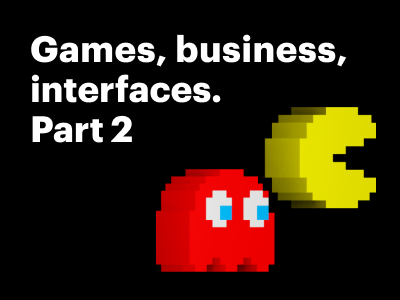21 February 2022
Games, business, interfaces. Part 3: Parallels with UX Design and Business
This article is the third and final in a series about experience design in understanding wider than in interfaces, from our CEO Alexey Kulakov. We have already looked into what a game is and what tools can be found in games. It's time to find out what it all means for working on a product.
If you still don’t understand what we are talking about here, what does the game have to do with it and what problematization, action and reflection are, then we advise you to go back a step or two and read the previous parts:
• the first part – about what a game is, what types of games exist and what are their main features – you can read it here,
• the second part – about the tools taken from games that can be used when designing interactions – here,
• and now we are at the finish line.
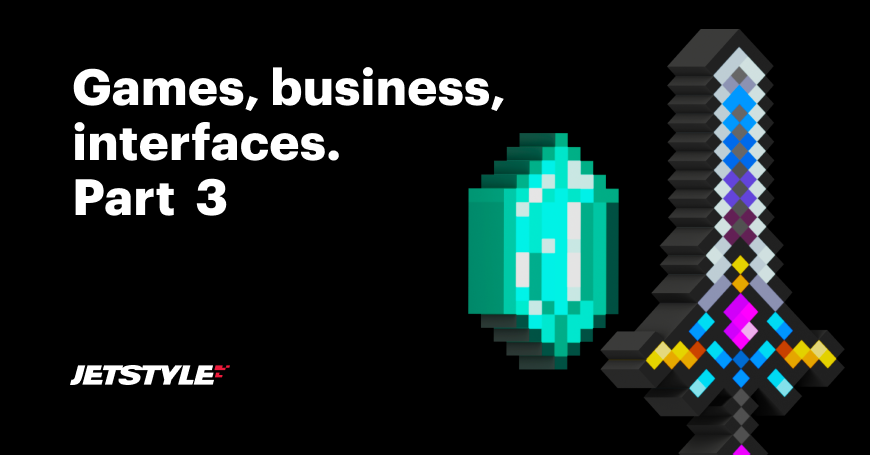
UX as a game
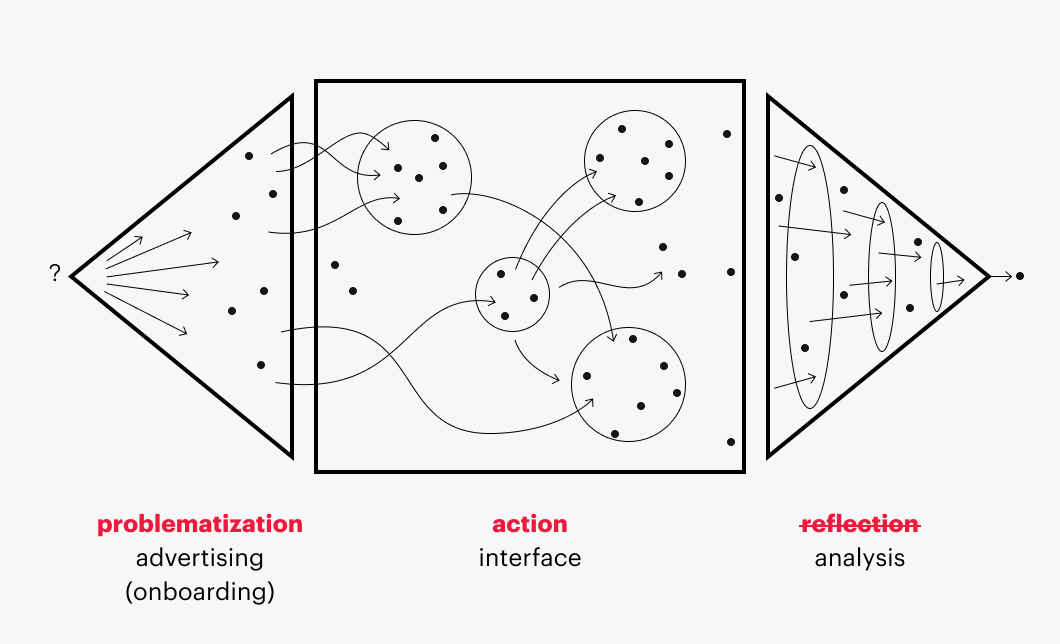
If we look at any site as a game, then we have onboarding, interface and analysis. Nobody usually does reflection for the user – and that's wrong.
In UX, instead of a person, a player, and a character, there is a value, an interface, and a context. A person comes for value, the interface is the game they are forced to play, the context is what we immerse them in so that they understand that this value is really there.
E-commerce
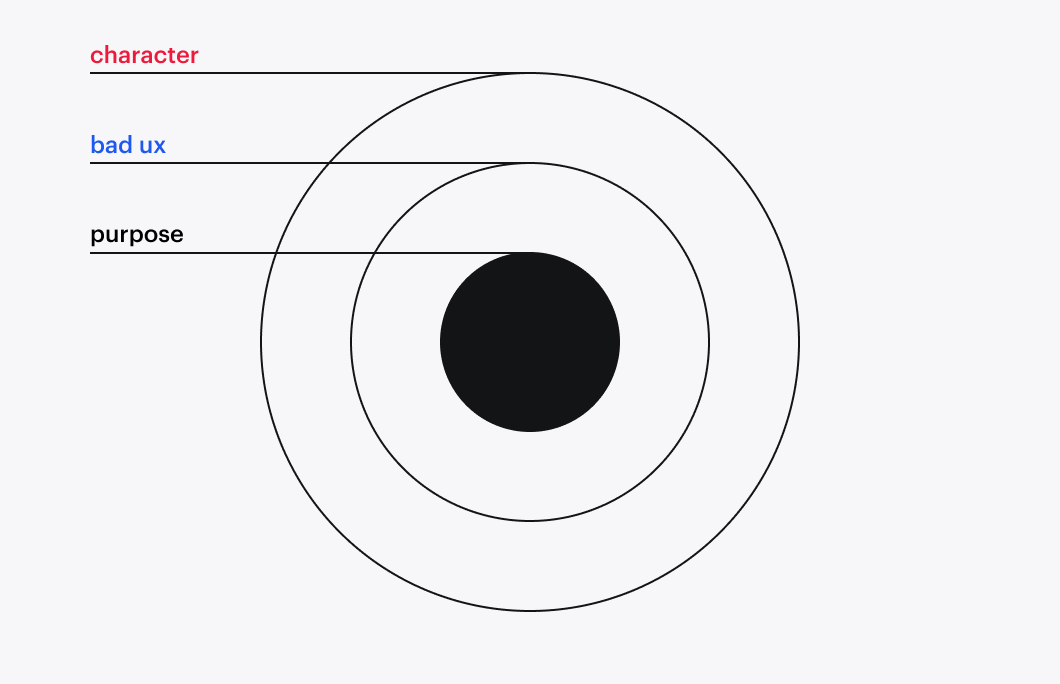
There is a belief that the ideal e-commerce doesn't contain an interface. It seems like a person wanted to buy something – and they bought it. And that's it. The moment they realised the problem, the ideal e-commerce kind of doesn't require the rest of the game.
Usually, if there are a lot of games in e-commerce, it is considered a bad UX. Well, really, who wants to "voluntarily overcome unnecessary obstacles" during the purchase? Therefore, we are trying to say in e-commerce that we are only with a person, only rationality. The only value we offer is a benefit or a reward. We believe that people don't shop for everything else. And this, of course, is not true.

If we understand that people shop to immerse themselves in the atmosphere, to win the competition, or to find new selves, then we will find a place for new value and we can create quite interesting “games” in a place almost empty of competitors. People will spend a lot more money with us and get more emotions out of it.

Problems look like this:
-
we are focused on goals, not on experiences;
-
we think in terms of benefit, not interest;
-
we spend a lot of effort on opening and try to minimise, ideally, eliminate time for the game;
-
we never work with the reflection of the "player" at all.
At the same time, the modern post-industrial economy is very much focused on interest and not on direct rational benefit. Think back on your shopping list for the past three months and ask yourself which of these items you bought simply because you had fun, not because you needed it that much.
For example, I know that our designer Olya buys all kinds of weird (and expensive) coffee, not because it's some kind of utilitarian need, but because it's fun to look for rare coffee and try it. When we understand that this type of player is interested in this, then we need to give it to them in the product.
In that sense, dudes who sell, for example, expensive tea, usually actually sell more of a story than tea. They tell us all sorts of tales about how they travelled in caravans, God knows where and how to consume it correctly, and how it will change our leisure time, and what we should read with this tea. And if we just bought the same tea, but without all this interlude, we would think: "Well, that's a nice tea." Or: "Well, that's a basic tea." And without this game, we would have thought: “Why is this tea so damn expensive?” And we would choose another pack. Because they didn’t give us a place to play, they didn’t expand the context, they didn’t show us the gameplay that was interesting for us.
In fact, when we design UX in e-commerce, we try to say: “The ideal interface is no interface. Let's make an invention, save the effort of the user to interact with our interface, and eliminate the effort spent on the game. The game is evil.“ But it's not.
We almost never work with player reflection. And this is very strange in the modern economy, especially if we want people to buy from us regularly. For example, the same Olya showed me the dudes who sell tea by subscription. They do a good job with the intro and put me in some context, but of course, nobody asked me what I thought about it. Nobody gave me room to put in the effort.
The more the client invests themselves in what is happening, the more loyal they will be.
Investments are measured by the actions that they did in reflection. Liking a post is much harder than nothing, taking a photo is much harder than liking a post, and writing two paragraphs of text is much harder than taking a photo. But if a person did this and did it in public, then they will not go anywhere later. By doing this, they have said (primarily to themselves) how important this game was to them.
Tool
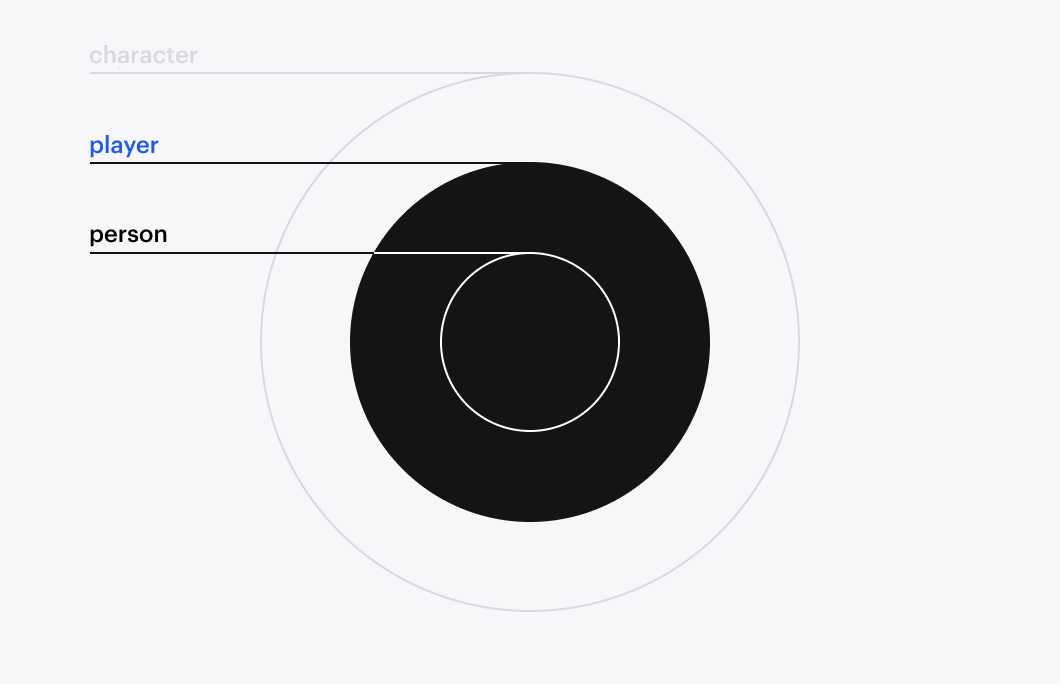
With tools, things are a little better because tools are interfaces that are designed for us to interact with them for a long time. The player's area in them is wider.
Rideró
“Almost every day, I get thank you messages from readers. Each of them is more precious than any rating in the world, believe me!”
This quote is here for this reason. Not that we deliberately did it. It's not about how great we are. But at Rideró, value is created by the fact that our users play a certain role – the role of the author.
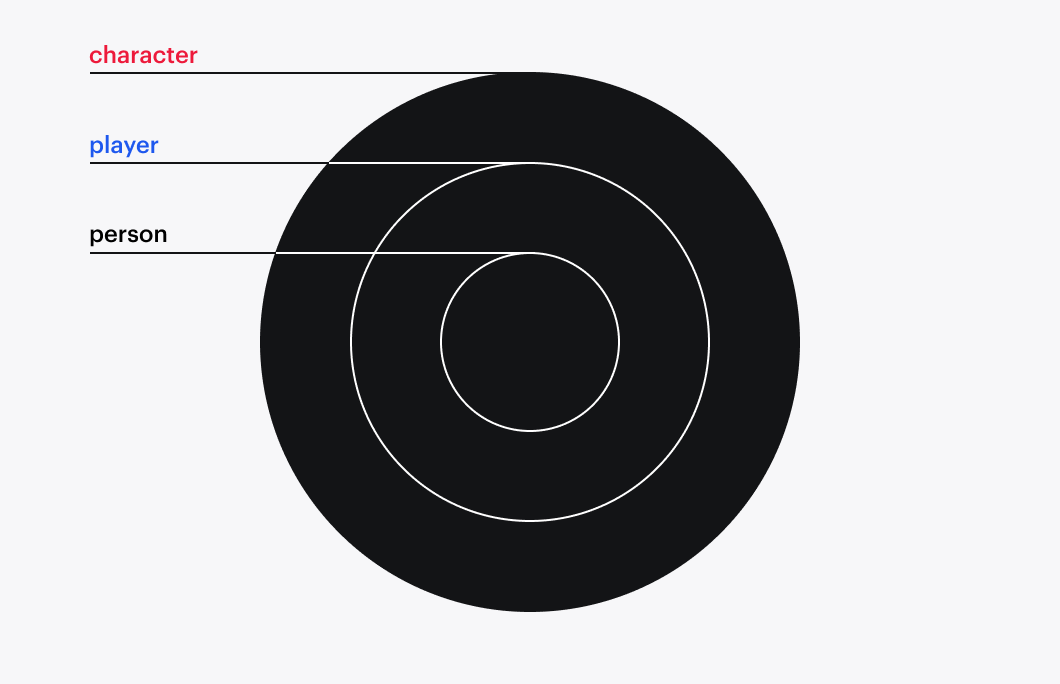
And in fact, they pay us money for the fact that we immerse them in their character. They overcome the difficulties with our gameplay and maybe not always get a lot of rational benefits, to be honest. But they are happy because their character is happy and they were able to play it.
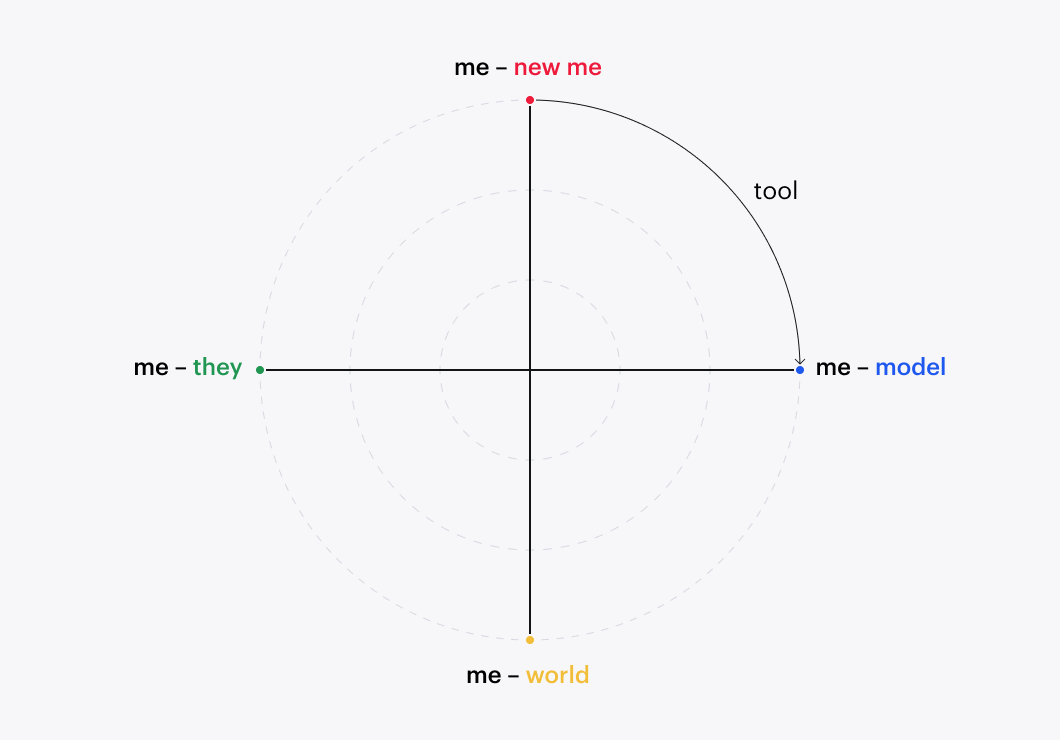
The tools are between the New Me and the Model. Interaction is a kind of tool that allows us to do something with the artificial environment and at the same time grow above ourselves.
Service
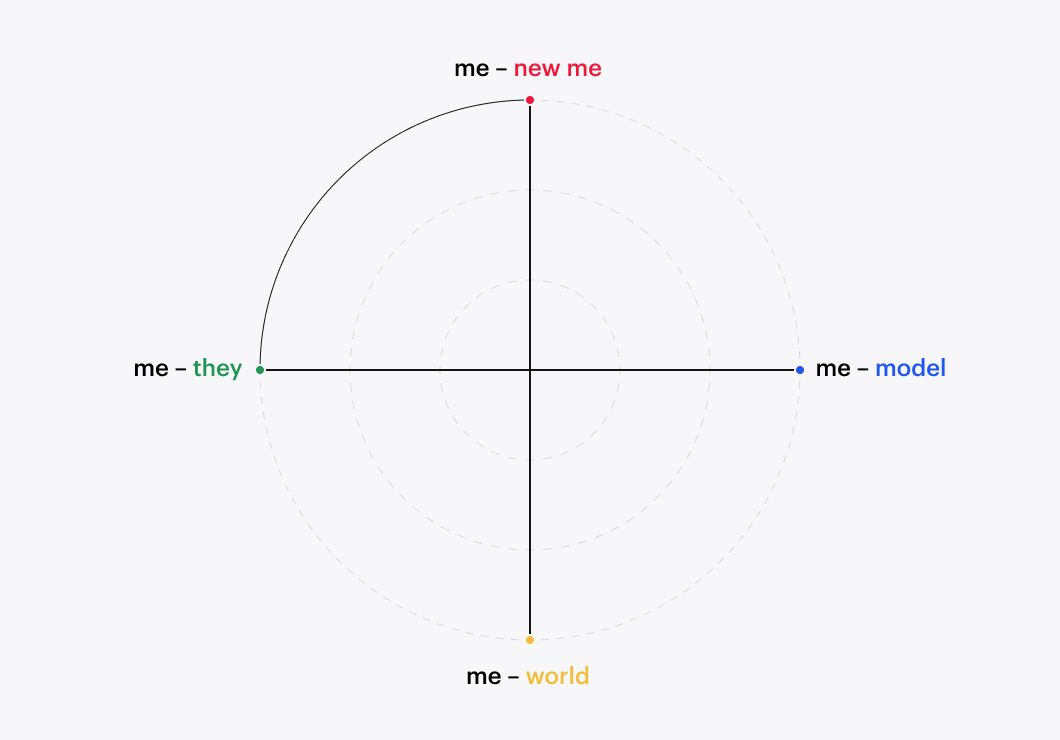
Services are the same, but with different people. They are also about the new me. Reflection helps here. This New Me is translated into English by the word "value". Value is when, as a result of interaction with the product, I have changed in such a way that I liked it.

The longer a person interacts with the interface, the more reasons to make the game interesting and enjoyable. Value is not only a benefit.
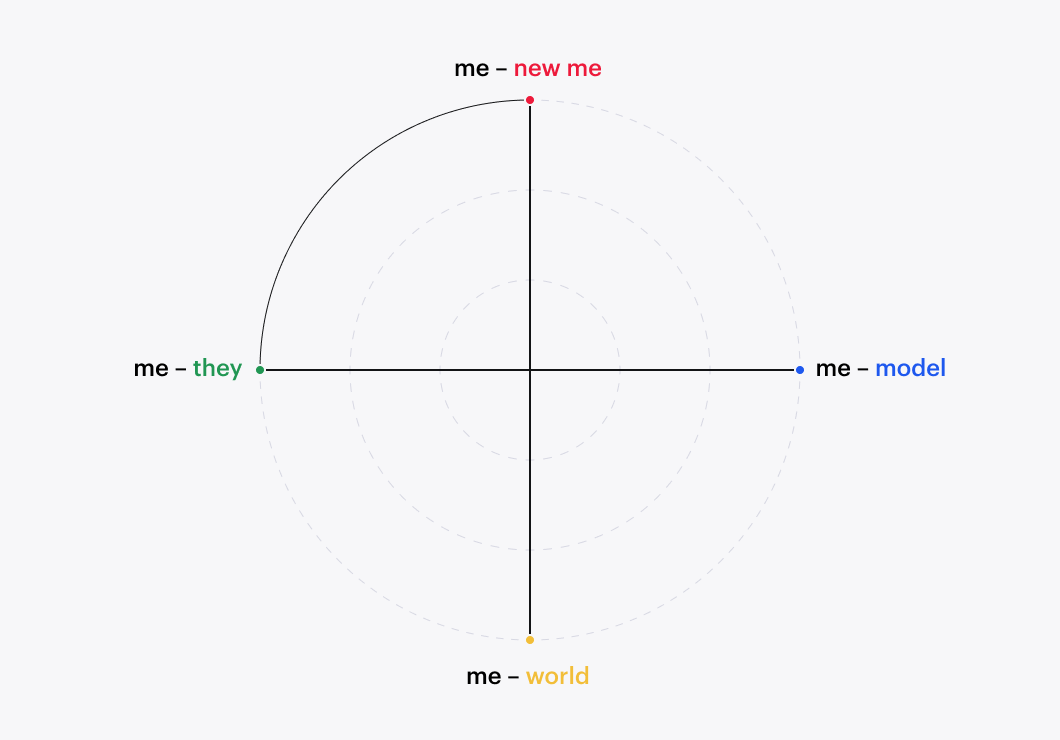
When we create a game, service, or business, we, as organisers, own the form. But we must understand that this form is just a container for content. For experiences that players or users or employees will create themselves. We will not create it, they will create it, and this is the value in the game.
That is, the value of the game is not in the form that we have created. The value of the service is not in the features that we proposed. The value of the business is not in the regulations that we have come up with. The value of all these things is in the experience that people get there, and what is valuable for them in terms of the joy of the game.
People evolve over time, learning to feel new joy. The longer the game lasts, the larger it is, the more arguments that it should learn to give all kinds of this joy. And genre features determine which of the joys it all begins with.
And finally, here is my position: all the best things in life have the property of a game. They are voluntary and exist so that the people who deal with them feel good. And in order to spoil something, you need to reduce the amount of the game in this activity. The easiest way is to break voluntariness.
For example, there is a school as it should be. Of course, it should be voluntary, and, of course, it should be good and interesting for people. At school, children should have an exciting experience on their own. They should make mistakes on their own and draw conclusions from this. And look for new, challenging, exciting learning for themselves. And there is a school, as an army. But it doesn't solve the problems of children at all, to be honest. This is a storage room for children while parents are at work. This is a game for parents and the state, and children in it are pawns. Pawns are not supposed to be interested.
Therefore, if we want to create something of value, I suggest treating the participants as players. Players participate in the game voluntarily, for their own value and interest. When they enter the game, they accept the rules. The exit is always open for them. And they remain in the game because it continues to surprise them with new joys.
You might also like

